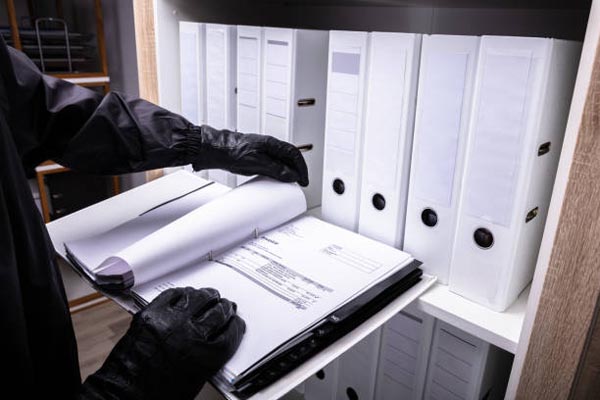
There is a lot of uncertainty around the question of expungement. Can a felony be expunged, and if so, is expungement only for certain types of felonies? Does the conviction have to be old, and if so, how old?
This article will clear up a lot of myths and misconceptions about expungement and will lay out the basic steps to expunge a criminal conviction.
Can felonies get expunged?

Yes and no. Yes, in certain states certain felonies can be expunged depending on a variety of other factors, but no, not all felonies qualify for expungement. Before discussing which felonies are likely to qualify for expungement and the process for expunging a felony conviction, it’s important to understand what expungement is.
What is expungement?
Expungement is a way of limiting access to your criminal record. Expungement means the record is destroyed.
Generally speaking, the court that grants the expungement will impound the physical file and delete the electronic file from their computers so that it no longer exists. The court will also order that any interested police departments must destroy all records pertaining to that case.
Expungement vs. Sealing a Criminal Record
Having a criminal conviction expunged is different from having a criminal record sealed.
Sealing means the record is kept confidential and typically can only be accessed in limited circumstances relating to law enforcement and sentencing. That said, some states allow employers, like schools and financial institutions, to obtain sealed criminal records in connection with employment-related criminal background checks.
What types of felonies can be expunged?

The type of felonies that can be expunged depends on the state you live in. Not all states allow expungement.
For example, New York does not allow expungement at all. Instead, New York allows certain types of criminal records to be sealed under specific conditions.
Even though New York law allows for the sealing of criminal records, there is a limit of two criminal convictions that can be sealed, and only one of them can be a felony.
Illinois allows expungement but has very strict requirements. In Illinois, you cannot obtain expungement for any crime that resulted in a conviction. A conviction usually means a finding of guilt resulting in a sentence of jail time, probation, conditional discharge, time served, fines, and also supervisions or qualified probations that have not been completed.
For states like Illinois, that leaves expungement available either in cases where there has been an arrest or charge of a crime without a conviction, or in cases where a conviction was ultimately reversed, vacated, or pardoned.
Conversely, some states have more liberal expungement laws. In fact, California has one of the most lenient expungement laws in the country. If you’ve been convicted of a misdemeanor or certain felonies in California, you’re allowed to petition the court to set aside the conviction and dismiss the case.
Even in states that allow it, expungement is only available in very limited situations.
In most states, serious felonies and aggravated crimes, such as murder, manslaughter, armed robbery, rape and other sex crimes, and crimes against minors may never be eligible for expungement.
On the other hand, a shoplifting felony for grand larceny (i.e., theft over a certain amount, such as $1,000) is an example of an easier felony to expunge.
In more conservative states, crimes like DUI, reckless driving, or cruelty to animals may never be able to be expunged. As for drug-related felonies, it depends on the classification of the drug crime. A felony conviction for possession of a controlled substance may be easier to expunge than the felony of drug possession with the intent to distribute.
When can you get a felony expunged?

Again, the time requirements for seeking an expungement varies from state to state. Sometimes a petition to expunge can be filed immediately, and other times there may be a statutory waiting period.
Consider Kentucky, where the law states that an application for expungement cannot be filed sooner than five years after the completion of the person’s sentence or five years after the completion of the person’s probation or parole, whichever occurs later.
Many states require the completion of any supervision or probation, and the payment of all fines or retribution before a person can qualify for expungement. In those cases, the waiting period normally starts from the date of completing supervision, probation or retribution.
In some states, if you were sent to prison, this may automatically disqualify you, but other states may still allow expungement even if you served jail time so long as you can show a lengthy amount of time has passed without new criminal charges and that you are a contributing, law-abiding member of society.
What are the steps to getting a felony expunged?
If you’re looking to get a felony expunged, the very first step you should take is to get copies of your criminal records. You’ll need to review your criminal history to determine whether you can meet your state’s requirements.
That brings you to the next step, which is researching the expungement laws of your particular state.
If your felony or misdemeanor qualifies for expungement and the timing requirement has been met, the process of expungement formally starts with the filing of a petition or application with the proper criminal court.
Many states also require you to include your criminal record, proof of your completion of probation, supervision and/or retribution, and other paperwork with the petition, all of which will be submitted for a judge’s review and decision.
Most states will require you to send notice of your expungement request to the original law enforcement agencies, the district attorney’s office that handled your case, and the state agency that manages criminal histories for your state.
Most jurisdictions also require that a fee be paid in conjunction with the filing of the petition or application.
What are the benefits of expunging a criminal record?
A significant benefit of expungement is the record of the conviction is destroyed and removed from all files and databases. That means the felony no longer exists and does not have to be disclosed as a criminal arrest or conviction on job applications, loan and other financial documents, or other inquiries.
But maybe the most important benefit to expunging a criminal record is the peace of mind it brings knowing that a negative and unfavorable part of your past can be left in the past and will not haunt you for life. Your slate will have been wiped clean, so to speak. And who wouldn’t want that?
Lauren Blair is a lawyer who writes for the legal counsel and insurance education site, FreeAdvice.com. She has over 25 years of experience in litigation.